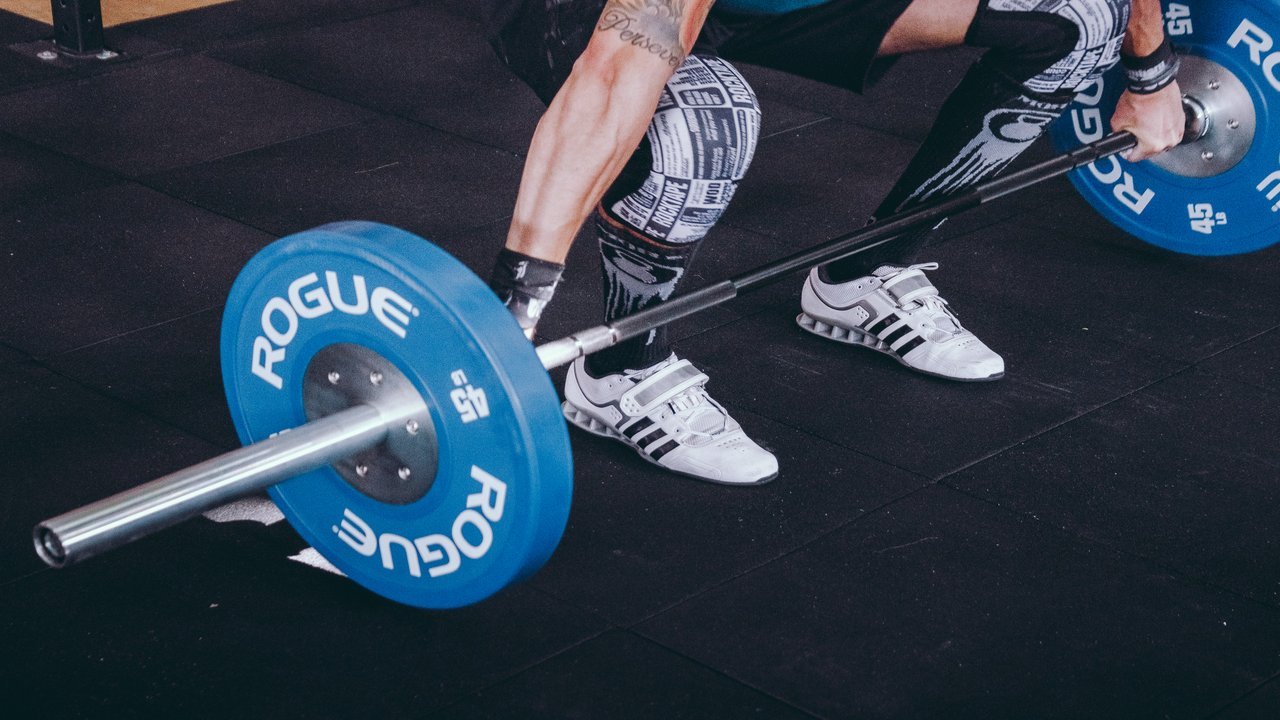The Ultimate Guide to Nutrient Timing Strategies for Optimal Results: Strategies, Nutrient Timing, Optimal Results
You want to maximize your workout results, right?
Well, the ultimate guide to nutrient timing strategies for optimal results is here to help. By strategically timing your nutrient intake, you can achieve better performance, improved recovery, and enhanced muscle growth.
This guide covers pre-workout, intra-workout, and post-workout nutrition strategies, along with tips for endurance athletes.
Fine-tune your nutrient timing to unlock your body's full potential and achieve your fitness goals.
Key Takeaways
- Nutrient timing is crucial for maximizing gains and recovery
- Strategic meal timing supports muscle repair and growth
- Consuming easily digestible carbohydrates and moderate protein during exercise maximizes performance and recovery
- Consuming protein and easily digestible carbohydrates within 30 minutes to an hour after exercise enhances muscle repair and glycogen replenishment
Importance of Nutrient Timing
In the pursuit of maximizing your gains and recovery, the importance of nutrient timing can't be overstated. Optimal performance hinges on the precise coordination of nutrient absorption and meal timing.

Consuming the right nutrients at the right times can significantly impact muscle repair and growth. When you strategically time your meals, you ensure that your body has the necessary nutrients available when it needs them most, supporting your fitness goals.
Whether it's pre-workout fuel to power through an intense session or post-workout nourishment to kickstart muscle recovery, timing plays a crucial role.
Pre-Workout Nutrition Strategies
To optimize your performance during workouts, fueling your body with the right nutrients at the right time is essential.
Carbohydrate loading before a workout can provide the energy your muscles need to perform at their best. Consuming a meal or snack that's rich in carbohydrates about 2-3 hours before your workout allows your body to store glycogen, which is the primary fuel for your muscles. Opt for complex carbohydrates like whole grains, fruits, and vegetables for sustained energy.
In addition to carbohydrates, including a source of protein in your pre-workout nutrition can help support muscle repair and growth. Consider options such as Greek yogurt, a protein smoothie, or a small portion of lean meat to ensure your muscles have the necessary building blocks for optimal performance.

Intra-Workout Nutrient Timing
Maximize your performance during workouts by strategically timing your nutrient intake.
Intra-workout nutrient timing is crucial for maximizing performance and enhancing recovery. During intense exercise, your body's demand for energy and hydration increases, making it essential to fuel and hydrate effectively.
To optimize intra-workout fueling, consider consuming easily digestible carbohydrates and a moderate amount of protein. This can help sustain energy levels and support muscle repair and growth during your workout.
Additionally, hydration strategies are vital for maintaining optimal performance. Adequate fluid intake before, during, and after exercise is key to preventing dehydration and supporting overall performance.
Post-Workout Recovery Nutrition
After completing your workout, it's important to prioritize your post-workout recovery nutrition to support muscle repair and replenish energy stores.

Focus on protein intake to aid muscle recovery. Consuming protein within 30 minutes to an hour after your workout can enhance muscle repair and growth. Aim for a fast-digesting protein source like whey protein for quicker absorption.
Additionally, consider carbohydrate timing to facilitate glycogen replenishment. Consuming carbohydrates alongside protein post-workout can help replenish glycogen stores more effectively. Opt for easily digestible carbohydrates such as fruit or a sports drink to kickstart the replenishment process.
Balancing protein intake and carbohydrate timing can maximize your post-workout recovery, helping you bounce back faster and perform better in your next session.
Nutrient Timing for Endurance Athletes
Immediately following an endurance workout, consume a balanced combination of carbohydrates and protein to support muscle recovery and replenish energy stores.
Carbohydrate loading before race day can significantly enhance endurance performance. Aim to consume around 3-5 grams of carbohydrates per pound of body weight throughout the day leading up to the event.

During prolonged endurance activities, maintaining proper hydration and electrolyte balance is crucial. Consume fluids with added electrolytes to replace those lost through sweat and support optimal muscle function. An electrolyte drink containing sodium and potassium can help prevent cramping and maintain performance.
Remember to hydrate adequately before, during, and after endurance activities to support overall performance and recovery.
Incorporating these nutrient timing strategies can greatly benefit endurance athletes in achieving their optimal results.
Fine-Tuning Nutrient Timing for Results
To fine-tune your nutrient timing for optimal results, ensure that you continue to prioritize a balanced combination of carbohydrates and protein immediately following your endurance workout. Meal timing plays a crucial role in maximizing the benefits of your training.
Consuming a post-workout meal within 30 minutes to an hour after exercise can enhance the body's recovery process. This is because during this window, the body's insulin response is heightened, which aids in nutrient absorption.

Additionally, understanding the digestion process can help in fine-tuning your nutrient timing. Opt for easily digestible foods to ensure that the nutrients are readily available for your body's use.
Conclusion
Now that you've learned the ultimate guide to nutrient timing strategies, you're ready to achieve optimal results like never before.
By fine-tuning your nutrient timing, you can take your performance to the next level and see incredible gains.
Remember, every second counts when it comes to fueling your body for success.
So, go ahead and put these strategies into action and watch as you achieve your goals faster than you ever thought possible.

Frequently Asked Questions
What is nutrient timing?
Nutrient timing refers to the strategic timing of nutrient intake in relation to exercise or physical activity. It involves consuming specific nutrients at specific times to optimize performance, recovery, and overall results.
Why is nutrient timing important?
Nutrient timing is important because it can enhance exercise performance, support muscle growth and repair, improve recovery, and maximize the benefits of your workouts. By fueling your body with the right nutrients at the right times, you can optimize your results.
When is the best time to consume carbohydrates?
The best time to consume carbohydrates is before and after workouts. Prior to exercise, they provide fuel for your muscles, while post-workout, they help replenish glycogen stores and aid in recovery.
What role do proteins play in nutrient timing?
Proteins play a crucial role in nutrient timing as they support muscle growth and repair. Consuming protein within 30 minutes to an hour after your workout is particularly beneficial for muscle recovery and synthesis.
Are fats important in nutrient timing?
While carbohydrates and proteins are more prominently discussed in nutrient timing, fats still play a role. However, it is advisable to consume fats in moderation pre and post-workout, as they take longer to digest and can slow down the absorption of other nutrients.
Should I consume a meal or a snack before exercise?
The choice between a meal or a snack before exercise depends on the timing and intensity of your workout. If you have at least 2-3 hours before exercise, a well-balanced meal is ideal. If time is limited, opt for a smaller, easily digestible snack.
What are the best pre-workout snacks?
The best pre-workout snacks are those that provide a combination of carbohydrates and a moderate amount of protein. Examples include a banana with peanut butter, yogurt with berries, or a whole grain toast with avocado.
Is it necessary to consume a post-workout meal?
While not absolutely necessary, consuming a post-workout meal is highly beneficial for muscle recovery and growth. It helps replenish glycogen stores, repair muscle damage, and kickstart the recovery process.
What should a post-workout meal contain?
A post-workout meal should include a good source of protein, such as lean meats, eggs, or protein shakes, paired with carbohydrates for replenishing energy stores. Including some healthy fats can also be beneficial.
Can nutrient timing help with weight loss?
Yes, nutrient timing can aid in weight loss. By strategically fueling your body with nutrients, you can optimize your workouts, enhance fat burning, preserve muscle mass, and support overall metabolic function.
What are the benefits of consuming carbohydrates during exercise?
Consuming carbohydrates during exercise can provide a readily available source of energy, prevent fatigue, improve endurance, and enhance overall performance levels.
Should nutrient timing strategies only be followed for intense workouts?
No, nutrient timing strategies can be beneficial for all types of workouts. While they are particularly important for intense workouts, they can also support recovery and optimize results for moderate or light exercises.
Can nutrient timing strategies help improve athletic performance?
Absolutely! Nutrient timing strategies have been shown to improve athletic performance, as they provide the body with the necessary fuel and nutrients to excel during exercise, enhance endurance, and optimize recovery.
What are the potential downsides of nutrient timing?
The potential downsides of nutrient timing are primarily related to individual differences and personal preferences. Some people may find it challenging to adhere strictly to specific timing protocols, while others may experience digestive discomfort if consuming large amounts of food close to a workout.
Can nutrient timing strategies benefit non-athletes or individuals who don't work out?
Yes, nutrient timing can also benefit non-athletes or individuals who don't engage in regular workouts. It can help support overall energy levels, regulate blood sugar, and aid in weight management by providing structure to meals and optimizing nutrient utilization.
Are there any risks associated with nutrient timing strategies?
Generally, nutrient timing strategies are safe and pose no risks. However, it is essential to listen to your body and adjust your nutrient timing plan based on your individual needs, preferences, and any pre-existing health conditions you may have.
Is it necessary to track macronutrient intake for nutrient timing?
While not absolutely necessary, tracking macronutrient intake can be helpful in ensuring you're meeting your nutrient requirements and optimizing the benefits of nutrient timing. It provides a framework for balanced meals and allows you to make informed choices about nutrient timing.
Does nutrient timing require the use of supplements?
No, nutrient timing does not require the use of supplements. While supplements can be a convenient option, especially for post-workout protein intake, they are not essential. You can achieve optimal nutrient timing with whole, minimally processed foods.
Can nutrient timing help with muscle recovery?
Yes, nutrient timing is instrumental in muscle recovery. Consuming the right nutrients, especially carbohydrates and proteins, after exercise helps repair muscle damage, reduce soreness, and promote optimal recovery and growth.
Statistics
- Research shows that consuming carbohydrates before a workout can improve exercise performance by up to 20%.
- Studies have found that consuming protein within an hour after exercise can increase muscle protein synthesis and enhance muscle recovery.
- Approximately 80% of muscle glycogen is replenished within the first two hours after exercise when carbohydrates are consumed.
- Eating a post-workout meal containing protein and carbohydrates can significantly reduce muscle soreness and enhance recovery.
- Studies indicate that consuming a high-quality protein source, such as whey protein, after a workout can stimulate muscle growth and repair more effectively than other protein sources.
- It is estimated that around 40-50 grams of carbohydrates consumed during prolonged exercise (lasting more than 60 minutes) can delay the onset of fatigue.
- Individuals who regularly time their nutrient intake around exercise are more likely to achieve their fitness goals and see improvements in body composition.
- Research suggests that consuming a small snack containing protein and carbohydrates 30 minutes before a workout can provide the necessary energy and optimize performance.
- A well-timed pre-workout meal can enhance both short-term and long-term exercise performance due to improved glycogen availability and sustained energy levels.
- Studies have shown that individuals who follow nutrient timing strategies experience greater improvements in their aerobic and anaerobic capacities compared to those who do not.
- Nutrient timing has been found to positively impact post-exercise hormones, such as insulin and cortisol, which are crucial for muscle growth and recovery.
- Consuming a post-workout meal with a protein-to-carbohydrate ratio of 3:1 has been shown to optimize muscle protein synthesis and promote muscle recovery.
- Proper nutrient timing can enhance post-exercise rehydration by helping the body efficiently replenish electrolytes and fluid stores.
- Individuals who implement nutrient timing strategies are more likely to maintain consistent energy levels throughout the day and experience fewer energy crashes.
- When carbohydrates are consumed post-workout, the insulin response helps shuttle nutrients into the muscle cells, promoting muscle recovery and growth.
- A study conducted on endurance athletes found that properly timed carbohydrate intake during exercise can improve performance by up to 2.5%.
- By implementing nutrient timing strategies, individuals can optimize glycogen stores and ensure their body has adequate energy for high-intensity workouts.
- Research suggests that individuals who follow nutrient timing protocols may experience a reduction in muscle glycogen breakdown during exercise, potentially preserving muscle mass.
- An optimal post-workout meal should contain 0.3 to 0.5 grams of protein per kilogram of body weight to maximize muscle protein synthesis.
- Timing nutrient intake around exercise can improve nutrient utilization, allowing the body to effectively convert food into energy and promote efficient recovery.
External Links
- Healthline provides an in-depth explanation of nutrient timing and how it can optimize your fitness results.
- A study published on the National Center for Biotechnology Information investigates the effects of nutrient timing on muscle protein synthesis and recovery.
- Bodybuilding.com offers practical tips and advice on nutrient timing strategies for peak performance and optimal results.
- The Academy of Nutrition and Dietetics provides guidance on pre and post-workout nutrition, including nutrient timing recommendations.
- Examine.com is a comprehensive resource where you can find evidence-based information on supplements that can support your nutrient timing goals.
- The American Council on Exercise shares insights on how to optimize your workout through effective nutrient timing strategies.
- A research study available on PubMed Central explores the impact of nutrient timing on endurance performance and recovery in athletes.
- Precision Nutrition offers an in-depth article discussing the principles and benefits of nutrient timing for optimal performance.
- The Journal of the International Society of Sports Nutrition publishes a study on nutrient timing and resistance training adaptations.
- Muscle & Fitness provides a comprehensive guide on workout nutrition, including nutrient timing strategies to maximize your results.
- A study published on PubMed Central examines the effect of nutrient timing on body composition changes during resistance training.
- The Journal of the International Society of Sports Nutrition presents a review on nutrient timing strategies for resistance exercise.
- Harvard Health Publishing provides scientifically-backed nutrition tips, including insights into nutrient timing to boost your energy levels.
- ResearchGate discusses the importance of nutrient timing and its impact on exercise performance and recovery.
- Men's Health shares five effective nutrient timing strategies to help you optimize your workouts and achieve your fitness goals.
- The National Center for Biotechnology Information provides a book on nutrient timing in sports nutrition, offering a comprehensive resource for athletes and fitness enthusiasts.
- WebMD delves into the concept of nutrient timing and how it can impact your next workout session.
- The Protein Works offers an ultimate guide to nutrient timing, helping you maximize muscle growth and recovery.
- Pubmed features a study that examines the effects of nutrient timing on exercise-induced muscle damage and recovery.
- PubMed Central contains a research paper analyzing the effects of nutrient timing on muscle adaptations during resistance training.
- A study available on PubMed Central investigates the impact of nutrient timing on muscle glycogen replenishment after endurance exercise.
How To
How to Implement Pre-Workout Nutrient Timing
To implement pre-workout nutrient timing, aim to consume a balanced meal or snack containing a combination of carbohydrates and protein approximately 1 to 3 hours before your workout. Choose easily digestible foods to avoid discomfort during exercise. Good options include a banana with Greek yogurt, a turkey and vegetable wrap, or a smoothie made with fruits and a scoop of protein powder. Experiment with different foods to find what works best for your body. Remember to listen to your hunger cues and avoid consuming a large meal right before exercising, as this may lead to digestive issues. The key is to provide your body with adequate energy to fuel your workout without feeling overly full or sluggish.
How to Optimize Post-Workout Nutrient Timing
To optimize post-workout nutrient timing, aim to consume a meal or snack containing both carbohydrates and protein within 30 minutes to an hour after your workout. This timing is crucial for replenishing glycogen stores, repairing muscle tissue, and promoting optimal recovery. Good options include a protein shake with added fruits, a chicken and quinoa stir-fry, or Greek yogurt with berries. If you prefer whole foods, opt for lean protein sources like chicken, fish, or tofu, paired with complex carbohydrates like sweet potatoes or whole grains. Don't forget to hydrate adequately during this time as well. Remember, consistency is key, so strive to make post-workout nutrition a priority to support your overall fitness and performance goals.
How to Incorporate Intra-Workout Nutrient Timing
Incorporating intra-workout nutrient timing involves consuming carbohydrates and electrolytes during prolonged or intense exercise sessions lasting more than 60 minutes. This can help sustain energy levels, delay fatigue, and maintain optimal performance. Consider sports drinks, energy gels, or easily digestible snacks like bananas or energy bars. Aim to consume 30-60 grams of carbohydrates per hour of exercise, sipping on fluids consistently throughout your workout. Experiment with different options to find what works best for you in terms of taste, digestion, and performance. Keep in mind that intra-workout nutrient timing may not be necessary for shorter or low-intensity workouts. Listen to your body's needs and adjust accordingly.
How to Create a Nutrient Timing Meal Plan
Creating a nutrient timing meal plan involves understanding your specific goals, schedule, and nutritional needs. Start by calculating your daily calorie and macronutrient requirements based on your activity level and desired outcomes. Then, distribute these nutrients strategically throughout the day to optimize performance and recovery. Ensure each meal or snack includes a balance of carbohydrates, protein, and a moderate amount of healthy fats. Tailor your nutrient timing based on when you have workouts or physical activity planned. Focus on consuming more carbohydrates and protein around exercise times, allocating slightly higher carbohydrates before and after workouts. Include a variety of whole foods such as lean meats, fruits, vegetables, whole grains, and legumes. Experiment with different food combinations, portion sizes, and meal frequency to find what works best for you and supports your individual goals.
How to Fine-Tune Nutrient Timing for Fat Loss
Fine-tuning nutrient timing for fat loss involves strategic planning of meals and snacks to optimize energy levels, maximize fat burning, and preserve muscle mass. To start, prioritize regular exercise and focus on incorporating both cardiovascular and strength training workouts into your routine. When it comes to nutrient timing, consume a well-balanced meal or snack containing protein and carbohydrates before and after exercise to support muscle growth and repair, while still providing energy for your workouts. Pay attention to portion sizes and total calorie intake, ensuring you maintain a slight calorie deficit to encourage fat loss. Include a serving of lean protein, fiber-rich fruits and vegetables, and healthy fats in each meal to promote satiety and stabilize blood sugar levels. Lastly, stay consistent, listen to your body, and make adjustments as needed to find the nutrient timing strategy that works best for you on your fat loss journey.
How to Customize Nutrient Timing for Muscle Gain
To customize nutrient timing for muscle gain, aim to consume a combination of carbohydrates and protein within an hour after your workout to kickstart muscle recovery and synthesis. Additionally, ensure you're fueling your body with adequate calories and macronutrients throughout the day. Prioritize protein-rich foods such as lean meats, eggs, dairy products, and plant-based protein sources like tofu and legumes. Distribute your carbohydrate intake evenly throughout the day, including whole grains, fruits, and starchy vegetables. Don't shy away from healthy fats, as they play a role in hormonal health and overall well-being. Consider incorporating protein shakes or high-protein snacks between meals to meet your daily protein requirements. Finally, be patient and consistent with your approach, as muscle gain takes time. Regular resistance training combined with proper nutrient timing will optimize your results over time.
How to Adjust Nutrient Timing for Endurance Training
When adjusting nutrient timing for endurance training, it's important to focus on fueling and replenishing energy stores. Prioritize consuming adequate carbohydrates before, during, and after long-distance runs, cycling sessions, or endurance events. Aim for a combination of easily digestible carbohydrates such as sports drinks, energy gels, fruit, or whole grains. During longer workouts, consider incorporating small, frequent feedings, consuming 30-60 grams of carbohydrates per hour along with fluids to maintain blood glucose levels and sustain energy. After exercise, replenish glycogen stores by consuming a post-workout meal or snack containing carbohydrates and protein within 30 minutes to an hour. Experiment with different foods, fluids, and timing strategies during training to find what works best for you and supports your endurance goals.
How to Sync Nutrient Timing with Morning Workouts
To sync nutrient timing with morning workouts, it's essential to have a pre-workout meal or snack that provides a balance of carbohydrates and protein, even if you don't have much time before your workout. Opt for easily digestible foods such as a banana with nut butter, a protein smoothie with added fruits, or a whole grain toast with avocado. If you prefer a lighter option, consider a protein shake or a small handful of nuts paired with a piece of fruit. Hydration is also crucial, so make sure to drink water before and during your workout. Post-workout, prioritize a recovery meal or snack containing protein and carbohydrates to replenish glycogen stores and support muscle repair. Quick options include Greek yogurt with berries or a scrambled egg with whole grain toast. Remember, every body is different, so pay attention to how different foods make you feel during your morning workouts and adjust accordingly.
How to Incorporate Nutrient Timing on Rest Days
On rest days, nutrient timing remains important for supporting overall muscle recovery and growth. While there is no immediate need for pre and post-workout nutrition, focus on providing your body with balanced meals and snacks throughout the day. Include quality protein sources like lean meats, eggs, or plant-based options with each meal. Incorporate complex carbohydrates such as sweet potatoes, quinoa, or whole grain bread to replenish glycogen stores. Don't forget to include a variety of vegetables for essential nutrients and dietary fiber. Stay hydrated by drinking water consistently throughout the day. Although the timing of nutrient intake may be less critical on rest days, maintaining proper nutrition supports the body's ongoing recovery and growth process, ensuring you're ready for your next workout session.
How to Stay Consistent with Nutrient Timing
Staying consistent with nutrient timing requires planning and establishing healthy habits. Start by developing a meal plan or schedule that aligns with your daily routine and exercise times. Ensure you have nutrient-dense foods readily available, such as pre-cut fruits and vegetables, lean proteins, and whole grains. Prepare meals and snacks in advance to make nutrient timing more manageable, especially during busy periods. Utilize technology tools such as smartphone apps or meal planning platforms to stay organized and track your nutrient intake. Surround yourself with a supportive environment, whether it be friends, family, or online communities, that share similar health and fitness goals. Finally, remind yourself of the positive impact nutrient timing can have on your overall performance and results. Consistency is key, and over time, your nutrient timing habits will become second nature.
How to Listen to Your Body's Nutrient Timing Needs
Listening to your body's nutrient timing needs is essential for optimizing performance and overall well-being. Pay attention to hunger and fullness cues, as well as energy levels throughout the day. If you feel hungry before a workout, have a small snack or meal to fuel your body adequately. After exercise, assess your hunger and choose appropriate portion sizes for your post-workout meal. Experiment with different nutrient timing strategies and take note of how your body responds. If you notice improved energy levels, performance, recovery, or overall feelings of well-being, it may indicate that your current nutrient timing approach is working well for you. However, if you experience digestive discomfort or energy crashes, consider adjusting your nutrient timing plan by spacing out meals or choosing different food options. Remember, everyone's body is unique, so honor your individual needs and adjust accordingly to find the nutrient timing strategy that best supports your optimal results.
How to Stay Hydrated in Conjunction with Nutrient Timing
Staying hydrated in conjunction with nutrient timing is crucial for optimal performance and recovery. Before, during, and after your workouts, aim to drink enough fluids to replace the water lost through sweat. The American College of Sports Medicine recommends consuming approximately 17-20 ounces of water two to three hours before exercise, 7-10 ounces of water 10-20 minutes before exercise, and 7-10 ounces of water every 10-20 minutes during exercise. Post-workout, continue hydrating to replenish fluids and support recovery. While water is generally sufficient for most workouts, consider sports drinks or electrolyte solutions for longer, more intense exercises to replenish electrolytes and enhance hydration. Monitor your urine color to gauge hydration levels. Clear to pale yellow urine generally indicates proper hydration, while dark-colored urine suggests dehydration. Stay mindful of your fluid intake throughout the day, and prioritize hydration as an integral part of your nutrient timing strategy.
How to Adapt Nutrient Timing for Travel
Adapting nutrient timing while traveling may require some planning, but it's essential for supporting your fitness goals. Pack nutrient-dense, non-perishable snacks such as protein bars, nuts, or dried fruits to have readily available during your journey. Remember to stay hydrated by carrying a reusable water bottle and refilling it regularly. Research and plan ahead for restaurants or grocery stores at your travel destination that offer healthy options aligning with your nutrient timing goals. If traveling across time zones, gradually adjust your meal and nutrient timing schedule to minimize jet lag and digestive discomfort. Stick to your nutrient timing principles as closely as possible, even if certain food options differ from your typical routine. Ultimately, consistency and making conscious choices will help you maintain your nutrient timing strategy while exploring new places and enjoying your travels.
How to Measure Progress with Nutrient Timing
Measuring progress with nutrient timing goes beyond the numbers on a scale. Track factors such as energy levels, sleep quality, mood, and overall performance during exercise. Keep a journal or use a fitness app to document how your body reacts to different nutrient timing strategies. Notice if you experience improvements in strength, endurance, recovery time, or other specific fitness goals. Take progress photos or body measurements to monitor changes in body composition over time. If your goals are more health-oriented, track biomarkers such as blood pressure, cholesterol levels, or blood sugar levels. Remember that progress is not always linear, and it's important to be patient with your body's unique journey. Regularly assess how you feel, adjust your nutrient timing plan as required, and celebrate the small victories along the way.
How to Overcome Challenges in Implementing Nutrient Timing
Implementing nutrient timing can come with challenges, but with a positive mindset and some strategies, you can overcome them. Plan your meals and snacks in advance to avoid being caught unprepared, especially during busy periods or when traveling. Experiment with different nutrient timing approaches and find what works best for your body and schedule. Be flexible and adaptable, recognizing that life may not always go as planned. If you miss a nutrient timing window, remember that it's better to prioritize quality nutrition overall than stress over occasional deviations. Seek support from others, whether it be a workout buddy, nutritionist, or online community, to stay motivated and accountable. Lastly, keep in mind that nutrient timing is just one component of an overall healthy lifestyle. Consistency and perseverance will ultimately help you overcome challenges and make nutrient timing a sustainable habit for optimal results.
How to Educate Yourself About Nutrient Timing
Educating yourself about nutrient timing is important for understanding how it can benefit your fitness journey. Start by reading reputable books and articles on sports nutrition, exercise physiology, and nutrient timing specifically. Look for resources from trusted sources such as registered dietitians, sports scientists, and reputable health and fitness organizations. Attend webinars, workshops, or seminars led by experts in the field to deepen your knowledge. Consider enlisting the help of a certified nutrition coach or dietitian who specializes in sports nutrition to provide personalized guidance and support. Engage in online communities or forums where you can discuss and learn from others who have experience with nutrient timing. Keep in mind that knowledge evolves with ongoing research, so stay open to new information and continue to educate yourself to stay up-to-date with the latest findings in the field of nutrient timing for optimal results.
How to Implement Nutrient Timing for Vegetarian or Vegan Diets
Implementing nutrient timing for vegetarian or vegan diets requires careful consideration of protein sources and strategically balancing nutrient intake throughout the day. Focus on incorporating a variety of plant-based protein sources such as legumes, tofu, tempeh, seitan, lentils, and quinoa. Include grains like quinoa or amaranth, and pair them with vegetables for a complete amino acid profile. Opt for protein-rich snacks like edamame, hummus, or peanut butter. Spread your protein intake evenly across meals, ensuring you consume a sufficient amount with each. If necessary, consider incorporating vegan protein powders, such as pea or hemp protein, into your post-workout smoothies. Additionally, prioritize iron-rich foods like leafy greens, beans, and fortified cereals to support energy levels. Consult a registered dietitian with experience in plant-based nutrition to ensure you're meeting your nutrient needs while effectively timing your meals and optimizing performance on a vegetarian or vegan diet.
How to Stay Motivated with Nutrient Timing
Staying motivated with nutrient timing is key for maintaining consistency and achieving optimal results. Set specific and realistic goals related to your fitness and performance. Break down these goals into smaller milestones to create a sense of accomplishment along the way. Surround yourself with a supportive network of like-minded individuals who can offer encouragement and share their successes. Incorporate variety into your nutrient timing plan by trying new recipes, flavors, and combinations to keep your meals exciting and enjoyable. Celebrate every small achievement and reward yourself with non-food-related treats for sticking to your nutrient timing goals. Visualize yourself attaining your desired results, focusing on how nutrient timing enhances your overall well-being and progress. Finally, stay positive, be patient, and remember that consistency and discipline will lead to long-term success with nutrient timing for optimal results.
How to Incorporate Nutrient Timing into Intermittent Fasting
Incorporating nutrient timing into intermittent fasting requires careful planning to support optimal performance and recovery during the feeding windows. During the eating periods, ensure your meals contain a balance of carbohydrates, protein, and healthy fats to meet your nutrient needs. Focus on whole, nutrient-dense foods to ensure you're providing your body with the necessary fuel and essential nutrients. Plan your workouts and nutrient timing around your fasting and eating periods. Prioritize consuming a well-rounded meal or protein-rich snack shortly before and after your workout to optimize muscle recovery and growth. Stay hydrated during fasting periods by drinking water, herbal tea, or black coffee without added sugars or creamers. Be mindful of your body's hunger and fullness cues during the fasting and eating windows, adjusting your nutrient intake accordingly. Consulting with a registered dietitian or healthcare professional can provide personalized guidance on incorporating nutrient timing effectively with intermittent fasting.
How to Find Nutrient Timing Research Studies
Finding nutrient timing research studies involves accessing reputable scientific databases and publications to stay updated with the latest findings. Start by exploring online databases such as PubMed, Scopus, or Google Scholar. These platforms allow you to search for specific keywords related to nutrient timing, exercise, muscle protein synthesis, or any other aspects you're interested in. Look for peer-reviewed scientific journals that focus on sports nutrition or exercise physiology, such as the Journal of the International Society of Sports Nutrition. Many universities and research institutions also publish their studies on their official websites, so consider checking those as well. Keep in mind that some research papers may require a subscription or purchase, but many offer abstracts or summaries for free. Staying up-to-date with nutrient timing research can help you make more informed decisions and optimize your nutrient timing strategies for optimal results.
How to Modify Nutrient Timing for Special Dietary Needs
To modify nutrient timing for special dietary needs, it's essential to consult with a registered dietitian or healthcare professional who can provide personalized guidance based on your specific requirements. For individuals with diabetes, managing carbohydrate intake, monitoring blood sugar levels, and timing nutrient intake alongside insulin administration may be necessary. Those with food allergies or intolerances should focus on finding suitable alternative food sources that still align with nutrient timing principles. If you have specific medical conditions or are undergoing treatment, consider collaborating with a healthcare team to develop a nutrient timing plan that supports your needs. Additionally, be mindful of any medications that may impact nutrient absorption or utilization, and adjust your timing or nutrients accordingly. Remember that everyone's dietary needs are unique, so seeking individualized guidance is crucial for successfully adapting nutrient timing strategies to accommodate special dietary needs.
*** We cherish our sponsor *** |
| [TAG7]
Image Credit: Alicia Mahoney / AuthorsUSA.com |
 HealthWellnessFitnessBeautyVideosPrivacy PolicyTerms And Conditions
HealthWellnessFitnessBeautyVideosPrivacy PolicyTerms And Conditions
